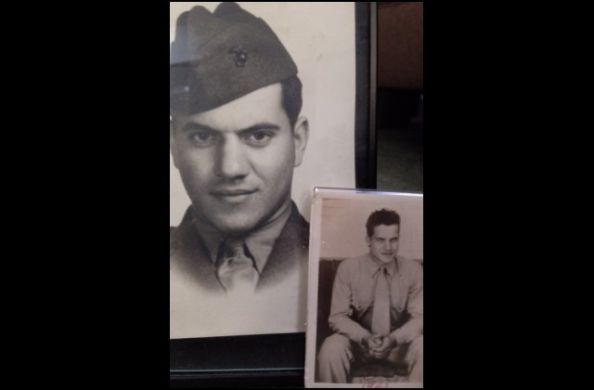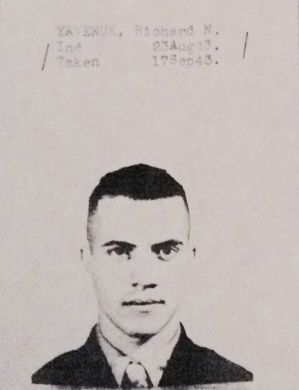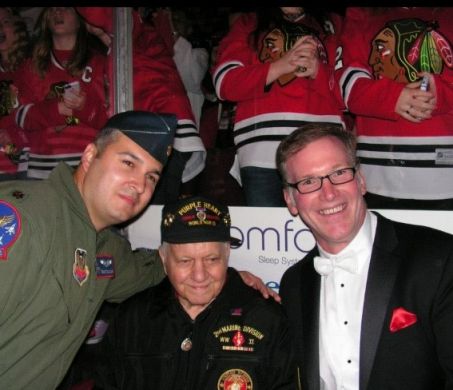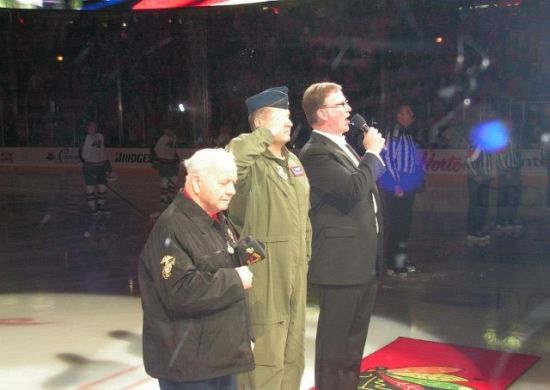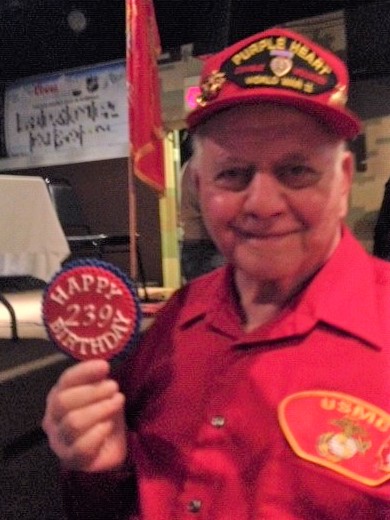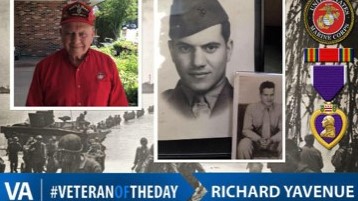Record date:
Richard Yavenue Transcript.pdf
Richard Yavenue, PFC
Richard Yavenue will not forget his D-day of June 14, 1944. As a Marine of 6th Battalion, 2nd Marine Division, he and his comrades-in-arms were packed into Higgins boats, circling the Pacific island of Saipan, where they heard the heavy firing noises of the battle As part of the fourth wave of Marines, they were ordered to disembark in five-foot-deep water, and were “greeted” by dead or wounded Marines on the open beach. Due to the smoke and shock, it took about another fifteen yards for them to realize that the Japanese were shooting at them from caves. Thus, begun three and a half weeks of incessant combat, only ending when Yavenue was wounded. Despite the devastation of battle, Yavenue’s humanity never left him.
Richard Yavenue was born on July 2nd, 1925, in Harvey, Illinois. His parents were Romanian immigrants and his father worked in various factories. He had three older sisters and one older brother. Mr. Yavenue enlisted in the US Marine Corps after he graduated from Thorton High School in 1943. After boot camp Mr. Yavenue trained at Camp Elliot in San Diego, California from which he was shipped to Maui, in Hawaii for more training. Mr. Yavenue was deployed to Saipan and was in the fourth wave of landings at the Battle of Saipan. In late June/early July, Mr. Yavenue met General Edson during the invasion who praised his efforts. On July 3rd, Mr. Yavenue was shot in the arm and removed from action. He recovered on New Caledonia and was then discharged in San Diego. After his service, Mr. Yavenue held many jobs until landing in a twenty-year career in retail security. Mr. Yavenue met his wife at cha-cha dance lessons after the war and she has proven to be a loving and supportive wife. He still lives with the psychological effects of the war and experiences night terrors. He still feels the horror of witnessing Japanese hiding in caves, who would not comply to his pleas of "Teta koi, Teta koi!" [Come on out. We won't hurt you’] before doing his duty.
As a take-home message, Yavenue encourages young people to volunteer for the service for six months or a year since the best way to stay out of war is to be prepared for war.










